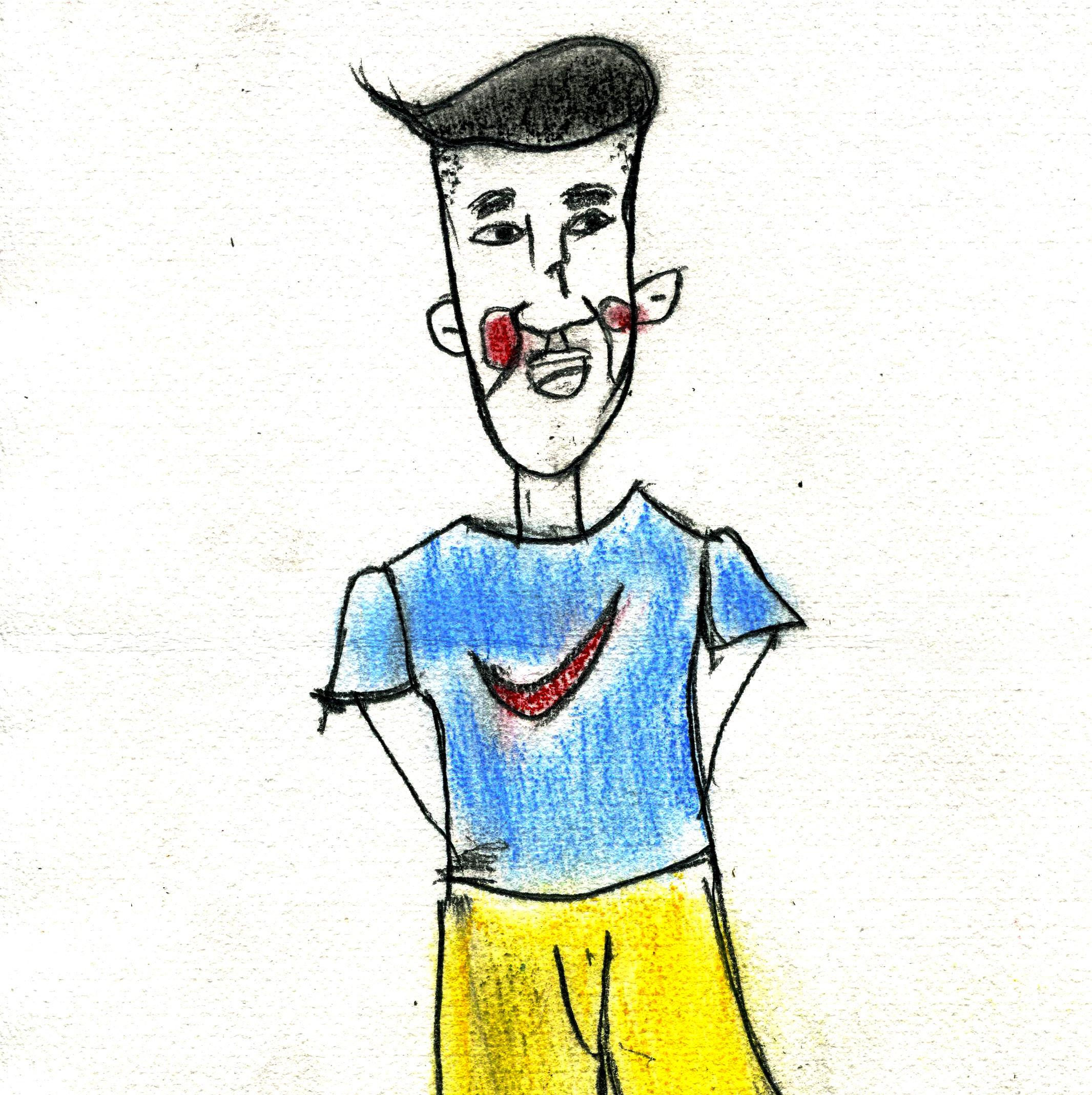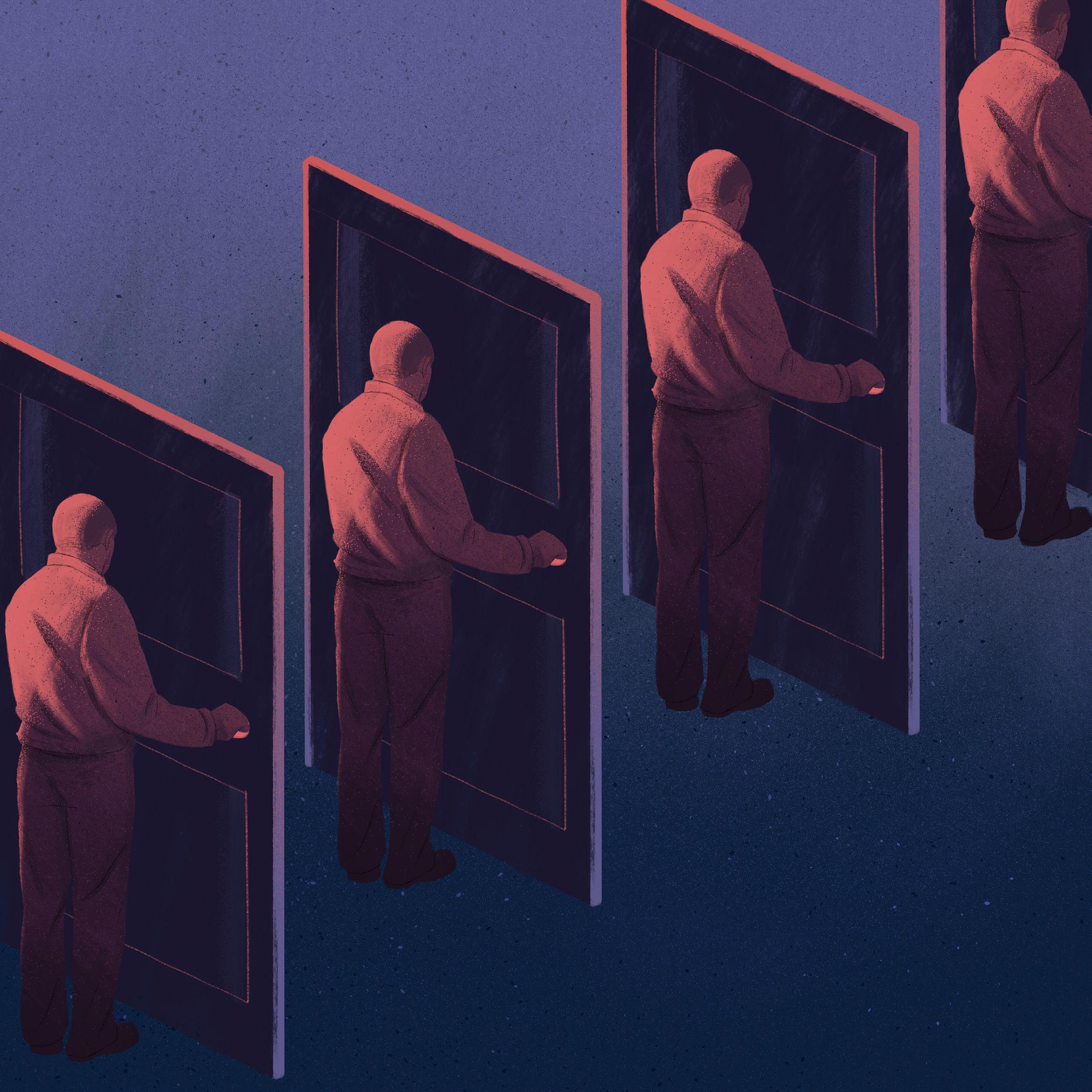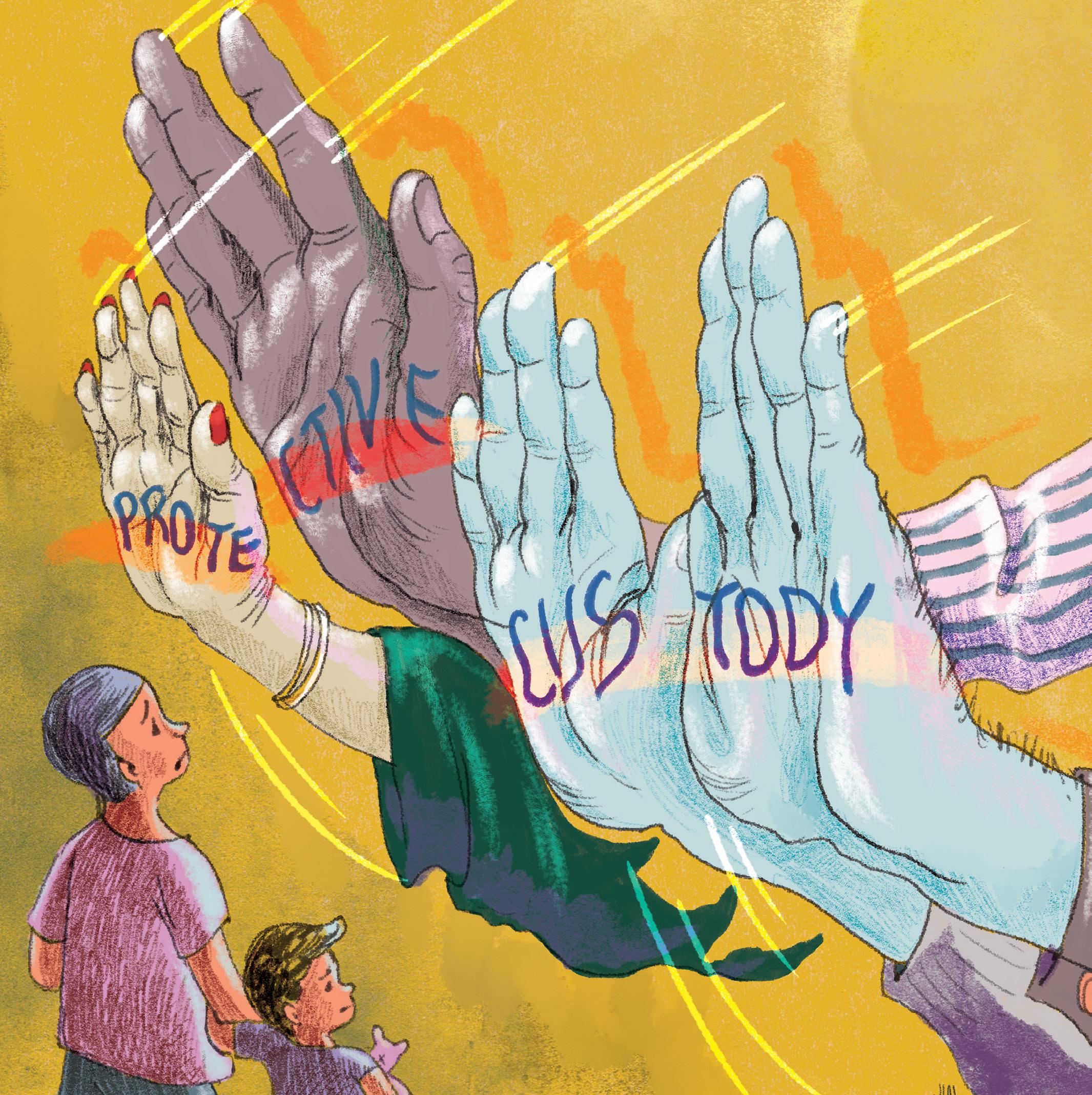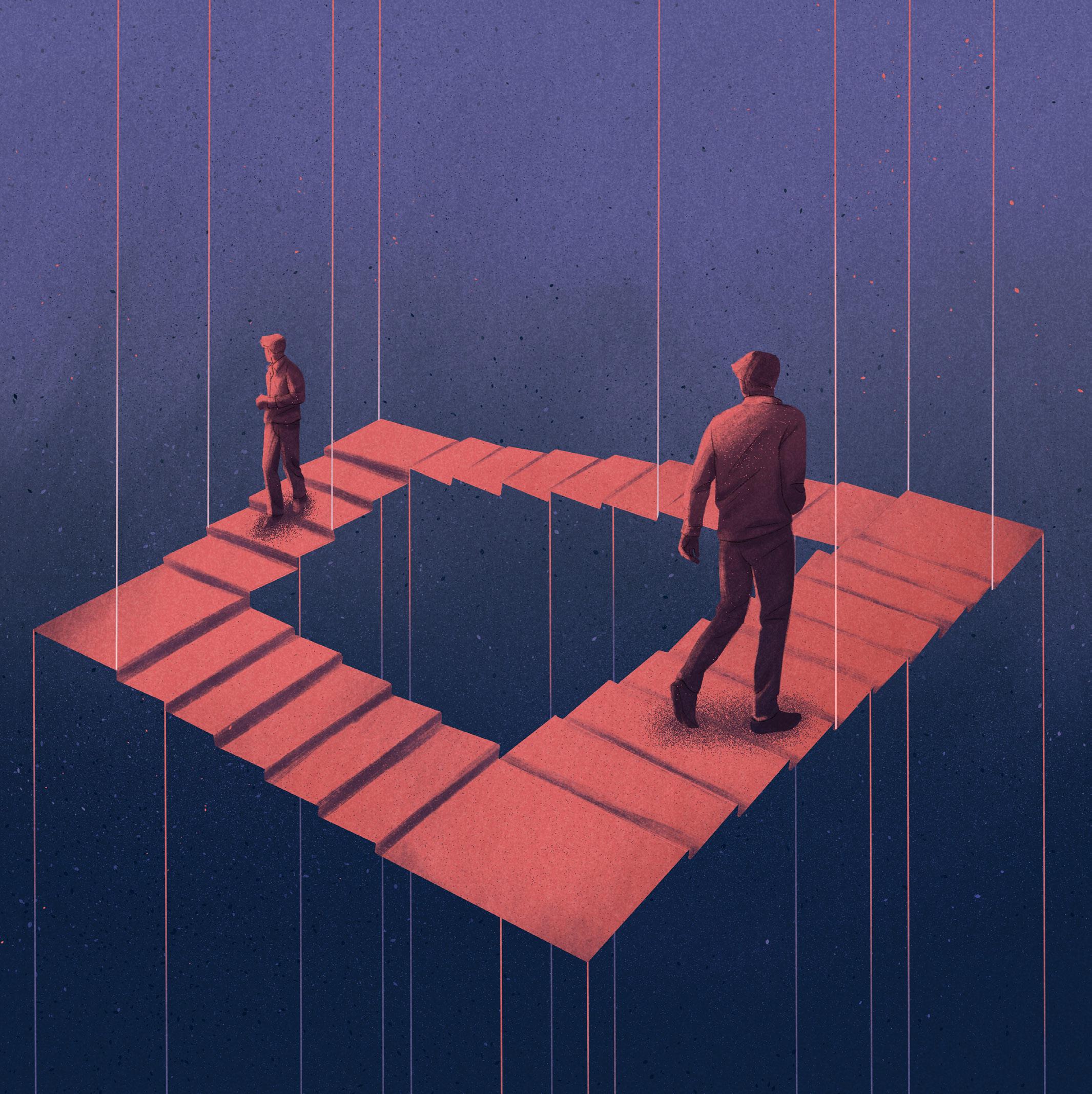
4 minute read
Hamid Detained in Italy� � � � � � � � � � � � � � � � � � � � � � � � � � � � � � � � � � � � � � � � � � � � � � � � � �
Omar Detained in the Netherlands
I come from North Africa. I’ve been in the Netherlands for four years and I’ve been stuck in immigration detention for four months.
Advertisement
In the detention centre, there are screens placed in the visitation area due to COVID-19, between the detainees and their visitors. It’s hard to see my girlfriend and our daughter behind the glass.
When I see my girlfriend I’d like to have some contact with her, but I can’t. I can only see her behind that glass.
I haven’t seen my daughter for four months. She’s 18 months old now. I know she still knows me, but she would cry if she saw me behind that glass.
I’ve never even seen my newborn son� I don’t have pictures with him when he was little�
When he’ll be ten or fifteen, maybe he’ll ask why there are no pictures of us together. What am I supposed to tell him? That I was detained? I feel really sad for my daughter, my girlfriend and my son.
The guards respond really late when I need help. One night I suffered from bad hyperventilation. I vomited, struggled to breathe and really thought I would die. Only after two hours someone came to check on me, even though I had asked for help multiple times.

Noel Detained in Belgium
I left Cameroun fleeing persecution for talking frankly about the government’s violations of human rights.
I came to Belgium believing it was a humane country, but here I was detained for twenty-one days without having committed a crime.
The police handled me harshly and put me in an ice-cold cell for almost a day, without anything to warm me up, in the middle of a cold winter. I looked for a lawyer to help me get out. I almost went mad in the detention centre.
I heard so many stories of bad treatment� Stories from people who fled inhumane governments and persecution, only to find another inhumane government here�
They might not get physically tortured anymore, but being detained without knowing for how long is a mental torture.
I stayed sane by doing small jobs in the centre, like cleaning the toilets. Even after ‘only’ twentyone days of detention, I still regularly check my doors at home and make sure they aren’t locked and I’m really free to walk out whenever I want. This still gives me a lot of stress.
I’m now working as a health care worker in Belgium. One day I’ll write a book about Belgium’s inhumane government with all the stories I collected in the detention centre.
Sabar Detained in Greece
I come from Pakistan. I’ve been in Greece for the last 11 months. I’m now living in a safe zone for unaccompanied refugee minors, but before this I was detained under the “Protective custody” system4 .
The conditions there were unbearable for anyone to live in. At the beginning, I had no idea why I was held there. Some children told me that it was because I entered Greece without papers.
I wasn’t allowed to call my parents. We didn’t have mobile phones and we had to save money to buy one. The bedroom was cold and dirty. Sometimes, when kids were shouting and asking for help, policemen would scream back at them and hit them badly.
I don’t understand how this place is supposed to protect children�

There was nothing that was giving me hope. I didn’t know anything about the laws in Greece. I had no idea when I would be released.
Those were horrible times. I hope no one experiences something similar. I’m afraid I’ll never manage to forget those days.
4 This interview refers to the Greek practice of detaining children in small and overcrowded police stations under the “protective custody” regime. This practice finally came to an end in 2020.

Yassin Detained in the Netherlands
I came to the Netherlands five years ago. Since then, I’ve been detained in immigration detention four times.
You see the same people there every day, the same stress, the same questions.
When will you get out? How long will you be there? When are you going to court? Will they extend your permit?
Every day is the same: it gets hard psychologically, you get angry, angry with everyone. I couldn’t take it anymore. They were not being transparent: deport me or let me be free.
It’s like a cat and mouse game: they’ll let you go and then keep chasing you. Once you’re free, the paranoia starts. Every time you exit a door, you look behind you. With every police encounter you already know what to expect.
I was afraid that one day I might do something crazy. I kept calm, but I didn’t know what was going to happen. I’m just a human being, it’s too much pressure.
Here we’re not treated like humans. Not even like animals, animals are treated with more respect than us in the Netherlands.






